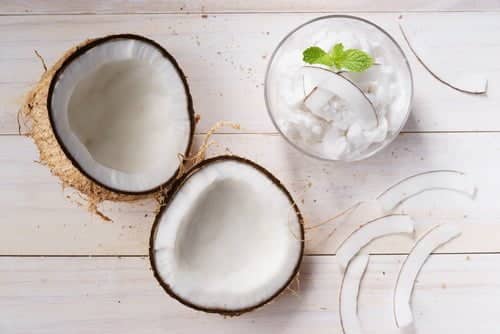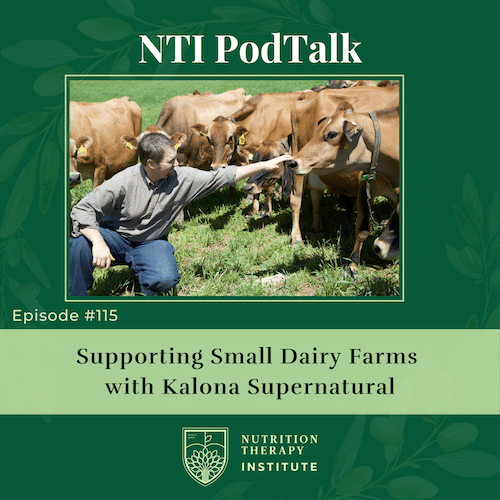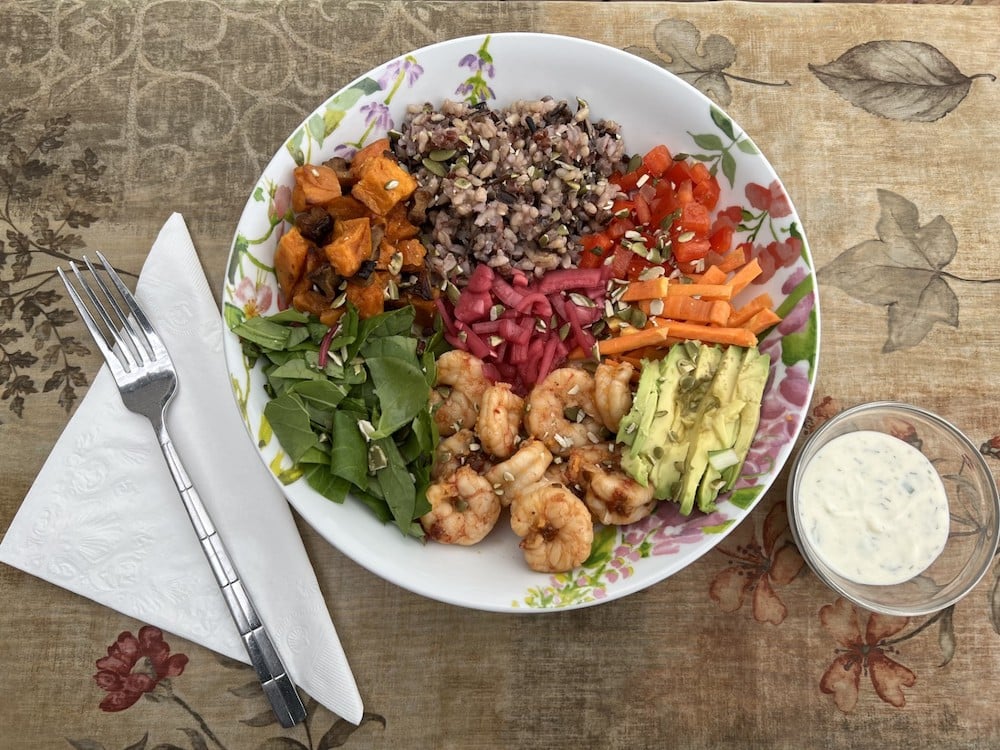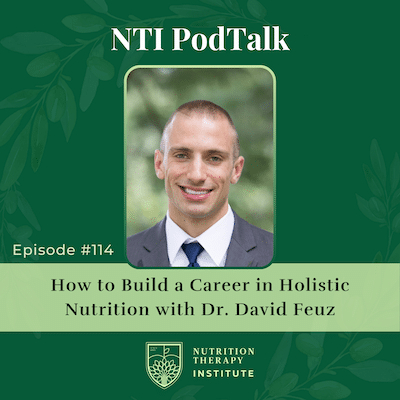
Share this post!
“Coconut oil is pure poison,” according to Harvard Professor Karin Michels, who recorded a YouTube video that went viral. I still hear people talking about this video, so I thought addressing this might still be helpful. The 50-minute video is delivered in German, but translations explain that she says coconut oil “is one of the worst foods you can eat.”
This is not the first time that members of esteemed organizations have condemned coconut oil. The American Heart Association has long advised people to limit their intake of saturated fats and coconut oil, with a 2017 report doubling down on that recommendation. The report declares that coconut oil raises LDL-cholesterol, LDL-cholesterol is a risk factor for heart disease, and therefore “we advise against the use of coconut oil.”
But the story doesn’t end there. Highly respected individuals on the other side of the aisle are also speaking up about coconut oil. In quick rebuttal to the scathing remarks from Professor Michels YouTube rampage, one of the most influential cardiologists in Britain issued a response. Dr. Aseem Malhotra asserts (in less than one minute) that the claims against coconut oil are “entirely false” and “unscientific nonsense.”
Health gurus and big names in the health and wellness sector have long extolled the virtues of coconut oil. Coconut oil is considered by many health-conscious individuals to be a superfood that should be used every day—to support brain health, immune function, weight loss, energy, and more. Proponents add coconut oil to their smoothies, their baked goods, and even their morning cup o’ joe.
What is a person to believe? The answer to nutrition controversies is never simple. Read on to review the basics about coconut oil, look at the scientific studies on coconut oil, and find out whether we think coconut oil is awesome or awful.
Coconut Oil Basics
Coconut oil is considered to be a source of saturated fat. Some reports show that as many as 92% of the fatty acids in coconut oil are saturated. The stable chemical structure of saturated fats protects them against damage from air, light, and heat. The saturated fat content of coconut oil makes it more stable when cooking, but it is also what makes it such a controversial food.
Most of the saturated fats in coconut oil are classified as medium-chain triglycerides, which makes them different than the saturated fats found in foods like beef or pork. The medium-chain length of these fats allows them to be absorbed intact from the intestines and pass directly to the liver to be burned for energy. Lauric acid is the most abundant medium-chain triglyceride in coconut oil, with others being caprylic and capric acids. Many of the health benefits cited by proponents of coconut oil are attributed to these medium-chain triglycerides.
Coconut Oil Studies
The opposition to coconut oil relies on the following logic: coconut oil contains saturated fats that increase LDL-cholesterol, LDL-cholesterol is a risk factor for heart disease, and therefore coconut oil must increase heart disease. The problem with this logic is that it is oversimplified.
Some studies show that coconut oil raises LDL-cholesterol to a greater extent than vegetable oils do, but almost all of those studies also show that coconut oil raises cardioprotective HDL levels. Two studies published in 2018 showed that coconut oil has the same or more beneficial effect on blood lipids than olive oil does: a study published just this summer showed that eating coconut oil with breakfast had no different effects on LDL or total cholesterol than eating extra-virgin olive oil with breakfast; and another study showed that coconut oil and olive oil had similar effects on LDL-cholesterol levels while only coconut oil provided the added benefit of boosting HDL.
Does coconut oil increase heart disease risk?
Although it is interesting to examine the effects of coconut oil on blood cholesterol levels, the more important question is whether or not coconut oil increases heart disease. Unfortunately, no studies have been designed to answer this question. The only studies to date look at the broader category of saturated fats in relation to heart disease. Results from two extensive studies of US doctors and nurses concluded that higher intake of saturated fats correlated with a greater risk of coronary heart disease, but those same studies also found that lauric acid (the primary fat in coconut oil) was associated with a lower risk of heart disease than any other saturated fats. Nearly all other long-term studies fail to show any link between saturated fat intake and the risk of heart disease. The most recent comprehensive review showed that saturated fats have no influence on the risk of heart disease or the risk of death from any cause.
When it comes to studies evaluating the purported superfood benefits of coconut oil, many are based on research in animals or in a petri dish. The best evidence from human clinical trials shows that coconut oil may be helpful in supporting brain health, heart health, and weight management. One study even found that coconut oil may reduce the side effects of chemotherapy in breast cancer patients.
Is Coconut Oil Awesome or Awful?
There is evidence from the studies described above that coconut oil might increase LDL levels but might also boost beneficial HDL levels. There is no evidence that coconut oil consumption increases heart disease or other chronic diseases. There is a small amount of evidence that coconut oil offers some health benefits.
Saturated Fat
As a rich source of saturated fats (albeit medium-chain fats), coconut oil has fallen culprit to one of the most controversial arguments in the history of nutrition: are saturated fats good or bad? The issue of saturated fats provokes intense emotions on both sides. When faced with controversy, there is one foundational principle that we fall back on at the Nutrition Therapy Institute without fail: the importance of whole, unprocessed, and chemical-free foods.
Oils of any kind are inherently processed. Coconut oil is more processed than a whole coconut, just as olive oil is more processed than a whole olive. The simplest way of processing oils, and the way that retains the most nutritional value, is crushing and pressing the oils out of the fruit or seed. This is the method used to create cold-pressed, unrefined coconut oil as well as extra-virgin olive oil and cold-pressed flaxseed oil. Because it is closer to its natural state, unrefined coconut oil is a healthier choice than refined vegetable oils (like corn oil, canola oil, or safflower oil) that have likely been treated with heat, chemicals, bleach, and deodorizers.
Organic vs. Conventional
Choosing organic coconut oil is the best way to be sure it is free of chemicals. Organic coconut oil is not riddled with the pesticides, herbicides, or genetically modified organisms (GMOs) that accumulate in industrially-produced vegetable oils, like corn, canola, and soy.
Whether or not coconut oil deserves superfood status may still be up for debate, but we conclude that coconut oil is far from being a “poison.” Organic and unrefined coconut oil joins the ranks of extra-virgin olive oil and organic butter as oils that are the closest to their natural state. Talk with your nutrition therapist about what is best in your personal situation, but for most people, we think that coconut oil can be considered a staple oil in an overall healthy and whole-foods diet.
Sarah Cook, ND, is an instructor at the Nutrition Therapy Institute
Related reading…
Dude’s Foods: Eating for Men’s Heart Health
Interesterified Fat from a Holistic Perspective
A Holistic Approach to Tattoos
Image: Rarintorn Wata/123RF
Share this post!


















